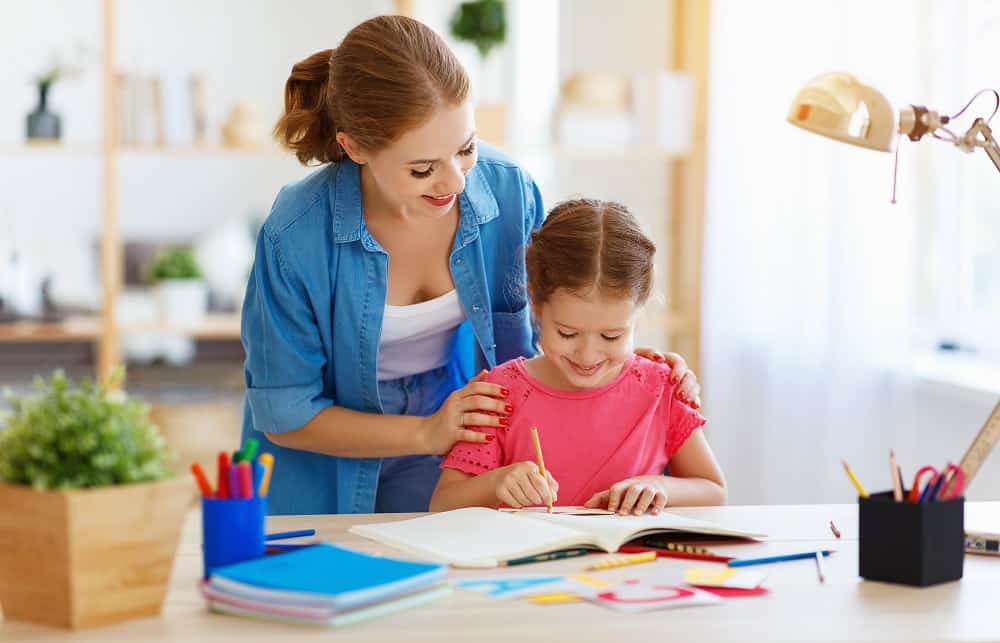Supporting cognitive and social development in young students is crucial for their overall growth and success. These early years lay the foundation for future learning and interpersonal skills.
Educators, parents, and communities play a significant role in fostering environments that promote these developmental areas. This article explores practical strategies to support cognitive and social development in young children.
One – Create a Stimulating Learning Environment
A stimulating learning environment is essential for young students. Classrooms should be well-organized, engaging, and designed to encourage exploration and learning. Bright colors, interactive displays, and accessible materials can make the classroom inviting and exciting for children.
To design an effective classroom, consider incorporating various learning stations that cater to different interests and skills. For example, a reading corner with a variety of books, a math station with puzzles and counting games, and a science area with hands-on experiments can stimulate curiosity and cognitive development. Furthermore, rotating materials and activities can keep the environment fresh and challenging, preventing boredom and encouraging continuous engagement.
Creating a learning environment that is both structured and flexible allows children to explore at their own pace while providing the necessary support to guide their learning experiences. This balance helps foster independence and confidence, key components of cognitive and social development.
Two – Hire Trained Educators
Hiring well-trained educators is crucial for supporting cognitive and social development in young students. Educators with specialized training in early childhood possess the knowledge and skills necessary to create effective learning environments and implement developmentally appropriate practices. Early childhood education programs like a Bachelor of Arts in Early Childhood Education equip teachers with the expertise to foster young learners’ growth in various domains.
Trained educators understand the importance of individualized instruction and can adapt their teaching methods to meet the unique needs of each student. They are skilled in creating lesson plans that incorporate diverse learning styles, ensuring that all children have the opportunity to succeed. These educators are also adept at recognizing developmental milestones and identifying any potential delays or issues early on, allowing for timely interventions and support.
Moreover, educators with a background in early childhood education are prepared to create a positive and inclusive classroom environment. They are trained to promote social-emotional learning, helping students develop skills such as empathy, self-regulation, and cooperation. This foundation is essential for building strong interpersonal relationships and a sense of community within the classroom.
Three – Encourage Play-Based Learning
Play-based learning is a powerful tool for promoting cognitive and social development in young students. Through play, children explore their environment, experiment with new ideas, and develop important skills. Different types of play, such as pretend play, constructive play, and physical play, contribute to various aspects of development.
Pretend play, for instance, helps children develop language skills, understand social roles, and enhance their imagination. Constructive play, which involves building and creating, fosters problem-solving abilities and spatial awareness. Physical play, including activities like running, jumping, and climbing, promotes motor skills and social interaction.
Educators can support play-based learning by providing a variety of materials and opportunities for unstructured play. Creating a safe and inclusive environment where children feel free to express themselves is essential. Encouraging cooperative play and guiding children through conflict resolution during playtime also supports social development.
Four – Foster Positive Relationships
Building strong, positive relationships between teachers and students is fundamental to social development. A supportive and trusting classroom environment allows children to feel safe and valued, which is crucial for their emotional well-being and social growth.
Teachers can foster positive relationships by showing genuine interest in their students’ lives, listening actively, and providing consistent support and encouragement. Creating routines and traditions within the classroom can also help build a sense of community and belonging. And hiring a tutor from a well-respected company such as Tutor Hut can also be a way to build confidence in a young student.
Positive interactions with peers are equally important. Educators can facilitate group activities that require teamwork and collaboration, helping children develop communication skills and learn the value of working together. Encouraging respect and empathy among students helps create a harmonious classroom atmosphere where everyone feels included.
Five – Promote Language and Communication Skills
Language and communication skills are vital for cognitive and social development. Proficient language skills enable children to express their thoughts and emotions, interact with others, and understand the world around them.
To promote these skills, educators can incorporate activities that enhance both listening and speaking abilities. Storytelling, singing, and rhyming games can make learning language fun and engaging. Additionally, interactive reading sessions where children are encouraged to ask questions and discuss the story can improve comprehension and vocabulary.
Classroom discussions and group projects provide opportunities for children to practice communication in a social context. Encouraging children to share their ideas and listen to others helps them develop effective communication skills, which are essential for building relationships and succeeding academically.
Six – Introduce Problem-Solving Activities
Problem-solving activities are crucial for developing cognitive abilities in young students. These activities encourage children to think critically, make decisions, and develop strategies to overcome challenges. Introducing age-appropriate problem-solving tasks can significantly enhance their cognitive growth.
One effective way to incorporate problem-solving into the classroom is through puzzles and games. Puzzles, such as jigsaw puzzles or logic games, require children to recognize patterns, use spatial reasoning, and apply critical thinking. Board games that involve strategy and planning also promote problem-solving skills. Teachers can also create scenarios or role-playing activities where students must find solutions to everyday problems, fostering creativity and logical reasoning.
Moreover, group problem-solving activities encourage collaboration and communication among students. Working together to solve a problem helps children learn how to share ideas, negotiate, and build on each other’s contributions. This not only enhances their cognitive skills but also supports social development by teaching them teamwork and cooperation.
To Sum It Up
Supporting cognitive and social development in young students is a multifaceted endeavor that requires intentional strategies and a collaborative approach.
The strategies mentioned above help create a well-rounded educational experience that fosters growth and prepares children for future success. By implementing these practices, educators can provide a nurturing and stimulating environment where young learners thrive.
Want to learn more tips and tricks for managing family life?
Snag a free workbook and get inspiration on all the ways to love your life even more.
>>Click Here to Discover Additional Strategies for Managing Stress, Anxiety, and Burnout <<









